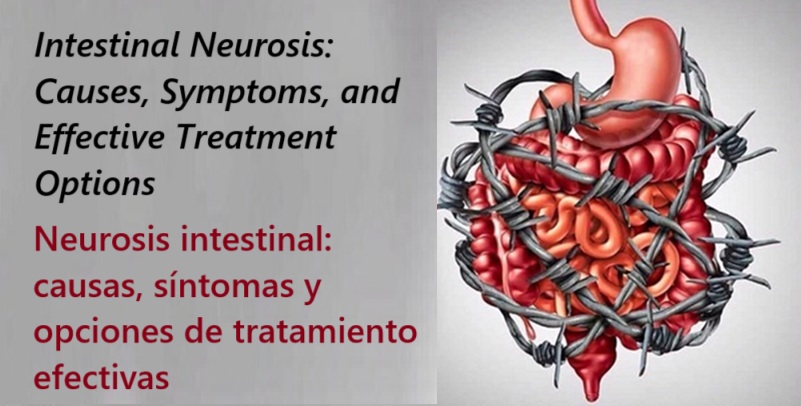Intestinal Neurosis – Symptoms, Causes, and Treatment
As a popular saying goes, “All diseases come from nerves,” yet when a person experiences a neurosis firsthand, this wisdom is often forgotten. When faced with a cold or the flu, people rush to treat themselves, but when the issue is a neurosis or a similar condition, it is often ignored. Many simply dismiss such a disorder, thinking it’s pointless to treat and that the body will somehow manage on its own. However, neurosis does not go away by itself—on the contrary, it may even get worse.
A common misconception is that neurotics are people who get irritated for no reason and are overly emotional. In reality, a neurotic state can develop in calm, seemingly balanced individuals. These people don’t express emotions outwardly but instead bottle them up, which leads to persistent health issues. One of the key signs of a nervous breakdown in such individuals is intestinal neurosis, commonly known as “bear syndrome.”
It is important to remember that many digestive disorders, particularly those affecting the intestines, result from a disrupted connection between the brain and internal organs. Stomach and intestinal illnesses often stem from conflict situations, negative emotions, and psychological trauma, which disrupt the body’s higher regulatory functions.
Classification of Intestinal Neurosis
There are three main types of intestinal neurosis, classified based on their predominant symptoms:
-
Predominant abdominal pain combined with bloating
-
Predominant diarrhea
-
Predominant constipation
Intestinal Neurosis: Main Symptoms and Manifestations
The primary causes of intestinal neurosis include:
-
Emotional shocks (fright, sudden excitement, fear)
-
Reflexive influence on the intestines from other organs (e.g., bladder, prostate, ovaries, or rectal diseases)
Intestinal neurosis is often observed in individuals with psychological disorders like neurasthenia or hysteria. However, it also occurs in emotionally stable individuals following intense emotional experiences, negative external influences, or deep personal conflicts.
Main Symptoms:
-
Sudden urges to defecate during stress
-
Stomach rumbling
-
Loose stools
-
Constipation
-
Intestinal cramps
The course of the disease varies and depends largely on the patient’s psychological state. Diagnosing intestinal neurosis is not easy and requires ruling out any organic diseases of the digestive tract and other abdominal organs.
Treatment of Intestinal Neurosis
Treatment should begin with studying the patient’s individual nervous system. The key is to properly influence the patient’s conditioned reflex activity and adjust their lifestyle. Physical treatments such as electrotherapy, warm baths, and body wraps may also be used.
Conservative treatment includes diet therapy. The diet should gradually progress from very light to more solid foods. Fermentable products and irritating substances should be avoided. Hot chamomile and bromide enemas can be effective. In cases of general agitation, the medication Adalin may be prescribed; for excessive gas and intestinal cramps, atropine can be used.
All medications should only be taken after consultation with a doctor and based on a detailed medical history. Self-medication is strongly discouraged, as it may worsen the condition.
In conclusion, the prognosis for intestinal neurosis is generally favorable. It responds well to treatment and rarely leads to more serious illnesses.







